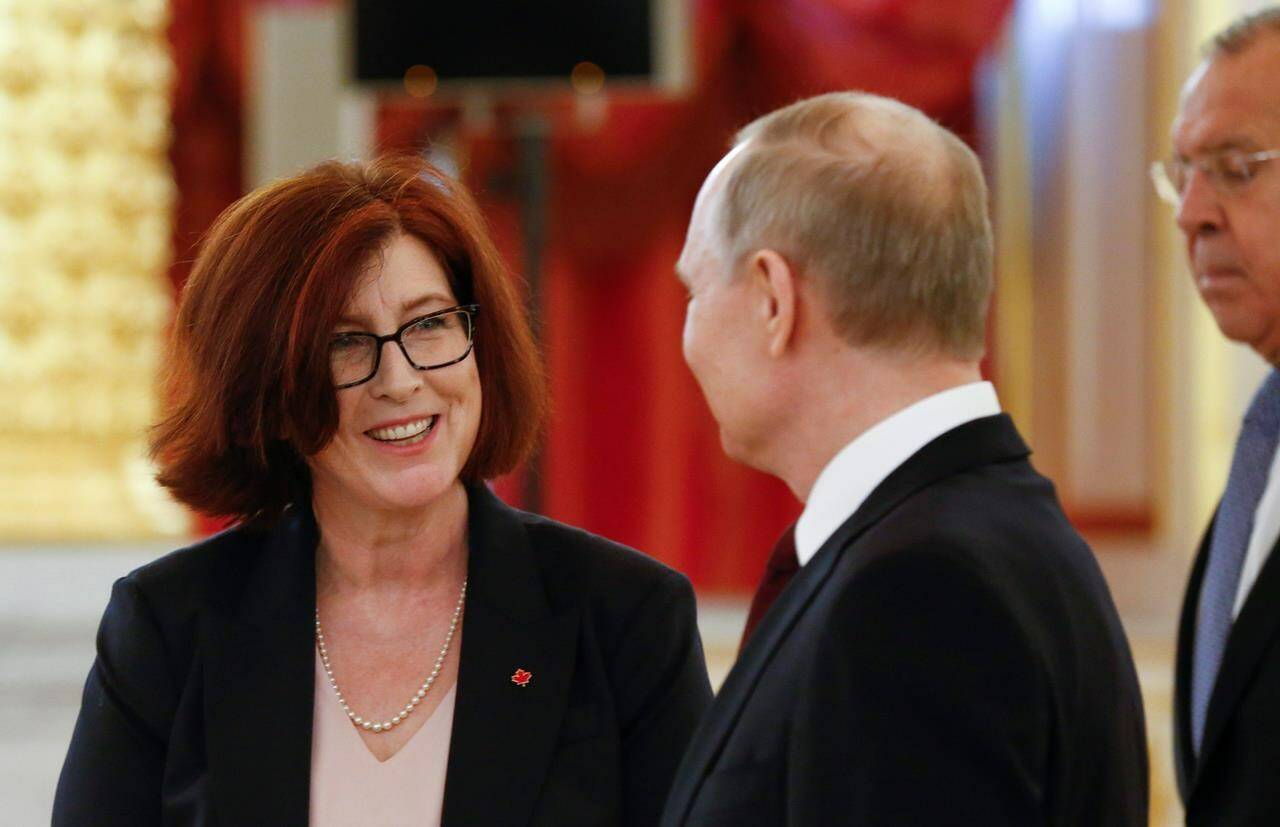Russia’s foreign ministry summoned Canada’s ambassador on Monday, as the RCMP investigate an alleged attack on its embassy.
Russia’s ambassador to Canada, Oleg Stepanov, said an unidentified person ran from a nearby park toward the embassy shortly after midnight on Sept. 12 and threw a lit Molotov cocktail over the fence before scampering off.
He said the device didn’t ignite, no one was hurt and no property was damaged.
In a Russian-language statement Monday afternoon, Moscow’s foreign ministry also claimed police have turned a blind eye to “aggressive demonstrators” blocking public access to the embassy’s consular section.
Moscow claims police witnessed this incident but didn’t intervene. Officials did not specify which police force.
The RCMP’s national division, which is charged with protecting foreign diplomatic properties, said Monday that it had opened an investigation, but it would not specify when that happened.
“The RCMP is aware of reports in relation to this incident and have opened an investigation,” wrote spokeswoman Stéphanie Dumoulin.
“RCMP members attended the Russian Embassy to obtain relevant information for the investigation.”
The Russian government said authorities aren’t doing enough to prevent or detain those committing “hostile actions” against its diplomatic staff, in breach of the Vienna Convention on Diplomatic Relations.
The Ottawa Police Service said it wasn’t aware of any investigation, including the claim that officers looked on as protesters blocked access to the consular section.
The office of Foreign Affairs Minister Mélanie Joly said it was closely following the issue.
“Violence and vandalism are not acceptable, and we understand that the relevant authorities are looking into this matter,” wrote spokesman Adrien Blanchard.
The Russian embassy in Ottawa provided an article in the state-owned news site Sputnik, in which Stepanov argues his staff need police or a security guard permanently stationed at diplomatic missions.
The country has a separate embassy, consulate and trade office in Ottawa, all three of which sit near the Rideau River, plus a Toronto and Montreal consulate.
Stepanov said his officials provided police with video footage of the Molotov cocktail incident. “We are essentially talking about an attempt to commit a terrorist act,” he is quoted as saying in the Sputnik posting.
Moscow has summoned Canadian ambassador Alison LeClaire, a move meant to formally register Russia’s growing ire with Canada.
Prime Minister Justin Trudeau said on Sunday that Russia’s actions since invading Ukraine “clearly include war crimes,” noting reports of mass graves.
Joly’s office doubled down on that phrasing Monday.
“We will not spare any effort to hold Putin and his accomplices accountable for their war crimes,” Blanchard wrote.
“We will continue to impose severe costs on the Russian regime for this unjustified invasion.”
The Russian embassy is on Charlotte Street in Ottawa, where the city has installed “Free-Libre Ukraine” street signs.
A bicycle painted blue and yellow sat outside the embassy for weeks until a group spray-painted it black on Aug. 16.
The group also painted a large Z on the sidewalk and lamppost, which is a sign indicating support for Russia’s invasion of Ukraine. One passerby posted photos on social media of the group, which appeared to have arrived on the scene in a car with diplomatic plates.
—Dylan Robertson, The Canadian Press
RELATED: Canada to create team to counter Russian disinformation: Trudeau

